Every year, millions of passengers face the inconvenience of flight delays. While these disruptions can be frustrating, many travelers are unaware of their rights to compensation. This guide aims to shed light on the intricacies of flight delay compensation, especially within the European Union’s EC 261 regulation, and guide passengers on how to claim what’s rightfully theirs.
Key takeaways
- EC 261 regulation: The European Union’s EC 261 regulation mandates airlines to compensate passengers for flight delays exceeding three hours, unless the delay is due to extraordinary circumstances. Compensation can range from $280 (€250) to $700 (€600), depending on the flight’s distance and the delay’s duration.
- Eligibility and compensation amount: The compensation amount varies based on flight distance and the length of delay. For instance, short-haul flights delayed by three hours or more can yield $280 (€250), while long-haul flights delayed by four hours or more can result in $700 (€600). The regulation applies to all flights departing from an EU airport and, for flights arriving at an EU airport, the airline must be EU-based.
- Flight compensation companies vs. independent claims: Passengers can either seek the assistance of flight compensation companies, which handle the entire claim process but charge a success fee, or opt to claim compensation independently, which can be time-consuming but allows passengers to retain the full compensation amount.
- Common myths debunked: There are several misconceptions about flight delay compensation. For example, accepting care from the airline, like meals or hotel accommodation, does not waive one’s right to monetary compensation. Also, both EU and non-EU citizens can claim compensation under EC 261, provided the flight meets the regulation’s criteria.
- Real-life success stories: Several passengers have successfully claimed compensation for their flight delays, highlighting the importance of being informed and proactive. These stories serve as testimonials to the effectiveness of the EC 261 regulation and the potential benefits for affected passengers.
Flight delay compensation overview

In discussions about flight delay compensation, the term ‘EC 261’ might not always be at the forefront, but it’s often the underlying reference. This European Union regulation has become the gold standard, setting clear and transparent rules that hold airlines accountable. Its influence is so profound that many travelers from outside the EU, having heard of its benefits, mistakenly believe similar standards apply globally. While there are various regulations worldwide, none have garnered as much attention or effectiveness as EC 261. This is why our focus in this article will be on this particular regulation.
When we talk about flight delays, it’s not just the waiting that’s the issue. It’s the missed connections, the disrupted plans, and the overall uncertainty. But there’s a silver lining. In many parts of the world, especially in the European Union, passengers have legal rights when their flights are delayed. The cornerstone of these rights in Europe is the EC 261 regulation.
Under EC 261, airlines are required to compensate passengers if their flight is delayed by three hours or more, provided the delay wasn’t due to extraordinary circumstances beyond the airline’s control. The compensation can range from $280 (€250) to $700 (€600), depending on the flight distance and the length of the delay.
But it’s not just about the money. The regulation also ensures that airlines provide care for affected passengers. This can include meals, refreshments, and even hotel accommodation for longer delays.
So, the next time you find yourself stuck at an airport due to a delayed flight, know that you have rights. Being informed and proactive can help you navigate the situation better and ensure you receive the compensation you deserve.
For those situations where your flight is not just delayed, but actually cancelled, we’ve got you covered as well. Check out our dedicated guide on flight cancellation compensation to understand your rights and the steps you can take in such scenarios.
Flight delay compensation eligibility criteria
| Criteria | Description |
| Flight origin and destination | Applies to all flights departing from an EU airport. For flights arriving at an EU airport, the airline must be EU-based. |
| Delay duration | Eligible for compensation if delayed by three hours or more upon arrival. The delay is based on arrival time. |
| Reason for delay | Airlines are not liable for ‘extraordinary circumstances’ such as extreme weather conditions, security threats, political or civil unrest, air traffic control restrictions, unexpected flight safety shortcomings, bird strikes, ATF (Absent Technical Faults), labor strikes, medical emergencies, and operational concerns. |
For a quick check on your flight’s eligibility and potential compensation, use this claim checker.
How much compensation can you get for a delayed flight?
| Flight Distance | Delay Duration | Compensation Amount |
| Short-haul: less than 932 miles (1500 km) | 3 hours or more | $280 (€250) |
| Medium-haul: between 932 and 2175 miles (1500 km to 3500 km) | 3 hours or more | $450 (€400) |
| Long-haul: more than 2175 miles (3500 km) | 3-4 hours | $338 (€300) |
| Long-haul: more that 2175 miles (over 3500 km) | 4 hours or more | $700 (€600) |
To get an estimate of the compensation amount, you can use this calculator.
Additional care during flight delays

Beyond the monetary compensation, EC 261 also emphasizes the well-being of passengers during extended delays. Airlines are obligated to provide care and assistance to affected travelers. Here’s what you should know and do to ensure your rights are upheld:
- Be proactive: If you’re experiencing a delay and the airline hasn’t communicated any information or assistance, approach the airline’s desk or staff. They should provide updates and necessary assistance.
- Food and refreshments: For delays of two hours or more, passengers are entitled to meals and refreshments in proportion to the waiting time. If the airline doesn’t immediately offer food vouchers, don’t hesitate to ask.
- Document everything: Take note of the time of announcements, the nature of the delay, and any other relevant details. This can be useful if you need to claim compensation later.
- Stay informed: Familiarize yourself with the airline’s policy on delays and your rights as a passenger. This knowledge can empower you when discussing your needs with airline staff.
- Overnight accommodations: If the delay extends overnight, airlines must offer hotel accommodation and transportation between the airport and the place of accommodation. If it looks like the delay will stretch overnight, inquire about these provisions.
- Keep receipts: If you make any purchases due to the delay, such as meals or transportation, always keep the receipts. They’re crucial for reimbursement claims.
- Stay calm and polite: Remember, the airline staff are doing their best in a challenging situation. Being calm and polite can often lead to better assistance and understanding.
- Communication access: Regardless of the delay duration, airlines should provide passengers with access to means of communication, such as free phone calls or emails.
- Seek legal advice: If you believe the airline isn’t meeting its obligations, consider seeking advice from a legal expert or a flight compensation company.
- Feedback and reviews: After your journey, consider providing feedback to the airline. Constructive feedback can help airlines improve their services. Plus, sharing your experience on review platforms can inform and assist other travelers.
These provisions and action tips ensure that while passengers might be inconvenienced by the delay, their immediate needs are addressed, making the waiting period more bearable.
What Flights are Covered?
| Flight Type | Description |
| Internal EU Flights | Flights between EU airports, regardless of the airline. |
| Non-EU Airlines | Flights departing from an EU airport to a non-EU destination. |
| EU Airlines | Flights from a non-EU country to an EU airport. |
Examples
- Flight from Frankfurt Airport (Frankfurt, Germany) to Paris-Charles de Gaulle Airport (Paris, France) with Lufthansa:
Distance: 279 miles (449 km).
Delay: The flight was delayed by four hours due to a technical fault unrelated to regular maintenance.
Compensation: Given the distance and the duration of the delay, passengers are entitled to $280 (€250) under EC 261. - Flight from London-Heathrow Airport (London, United Kingdom) to John F. Kennedy International Airport (New York, US) with British Airways:
Distance: 3442 miles (5540 km).
Delay: The flight was delayed by five hours because of operational issues at the departure airport.
Compensation: Given the distance and the delay duration, passengers are entitled to $700 (€600) under EC 261. However, since the destination is outside the EU, the compensation can be reduced by 50% if the delay upon arrival is between three to four hours. In this case, passengers would receive $338 (€300). - Flight from Indira Gandhi International Airport (Delhi, India) to Amsterdam Airport Schiphol (Amsterdam, Netherlands) with KLM Royal Dutch Airlines (an EU-registered airline):
Distance: 3954 miles (6364 km).
Delay: The flight was delayed by four hours due to unforeseen crew scheduling issues.
Compensation: Even though the flight originated outside the EU, since the airline is EU-registered and the destination is within the EU, passengers are eligible for compensation. Given the distance and the delay duration, passengers are entitled to $700 (€600) under EC 261.
What flights aren’t covered?
| Flight Type | Description |
| Non-EU Airlines | Flights departing from a non-EU country and arriving at a non-EU country. |
| Extraordinary circumstances | Delays caused by situations beyond the airline’s control, such as extreme weather, security threats, political instability, and air traffic control restrictions. |
| Waived rights | If passengers voluntarily accept a travel voucher from the airline as an alternative to monetary compensation for the delay, this may waive their right to further compensation. However, accepting care from the airline, such as food vouchers or hotel accommodation, does not affect the right to monetary compensation. |
Examples
- Flight from Munich Airport (Munich, Germany) to Vienna International Airport (Vienna, Austria) with Lufthansa:
Distance: 220 miles (354 km).
Delay: The flight was delayed by two hours due to a technical fault.
Compensation: Given the distance and the delay duration being less than three hours upon arrival, passengers are not entitled to compensation under EC 261.
- Flight from Barcelona-El Prat Airport (Barcelona, Spain) to John F. Kennedy International Airport (New York, US) with Iberia:
Distance: 3821 miles (6150 km).
Delay: The flight was delayed by five hours due to extreme weather conditions, which are considered ‘extraordinary circumstances’.
Compensation: Even though the delay duration was significant, the delay was caused by ‘extraordinary circumstances’ (extreme weather). Therefore, passengers are not eligible for compensation under EC 261.
- Flight from Narita International Airport (Tokyo, Japan) to Amsterdam Airport Schiphol (Amsterdam, Netherlands) with All Nippon Airways (a non-EU registered airline):
Distance: 5790 miles (9318 km).
Delay: The flight was delayed by four hours due to operational issues.
Compensation: The flight originated outside the EU, and the airline is not EU-registered. Therefore, passengers are not eligible for compensation under EC 261, even though the destination is within the EU.
It’s important to note that while these flights or situations might not be covered for compensation under EC 261, passengers might still have other rights or be covered under different regulations or airline policies.
Flight delay compensation time limit
The EC 261 regulation allows passengers to claim compensation for flight delays, but it’s essential to be aware of the time limits set by individual EU member states. These time frames determine how long after the disrupted flight a passenger can submit a claim.
| Country | Time Limit |
| Germany | 3 years |
| UK | 6 years |
| Spain | 5 years |
| France | 5 years |
| Italy | 2 years |
While it’s tempting to address a flight delay immediately, especially if it disrupts the start of your holiday, remember that you don’t have to rush the claim process. Enjoy your vacation, and once you’re back, you can initiate a compensation claim. However, it’s always advantageous to claim while the details of the disruption are still fresh in your mind and all relevant information is at hand.
Common myths and misconceptions about flight delay compensation
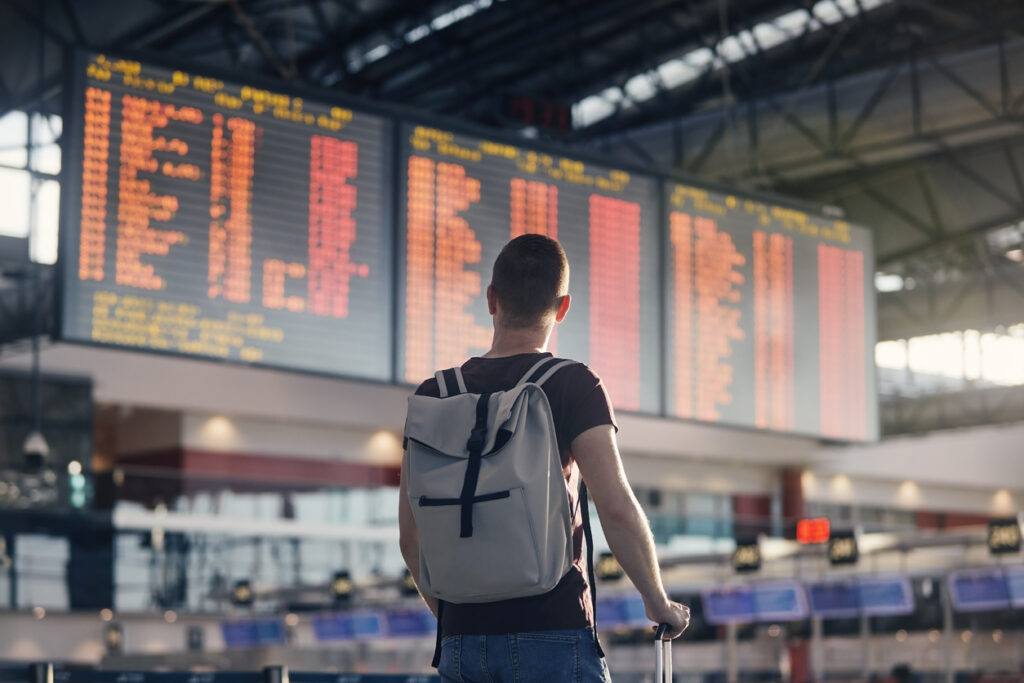
When it comes to flight delay compensation there’s a lot of information out there, and not all of it is accurate. Let’s debunk some of the most common myths and misconceptions.
1. Myth: “I can only claim compensation if my flight was delayed for more than eight hours.”
Truth: Under EC 261, passengers can claim compensation for flights delayed by three hours or more upon arrival.
2. Myth: “Airlines don’t owe compensation if the delay was due to bad weather.”
Truth: While ‘extraordinary circumstances’ like extreme weather can exempt airlines from paying compensation, it’s not a blanket rule. If the airline could have anticipated and managed the situation, they might still be liable.
3. Myth: “I accepted a food voucher from the airline, so I can’t claim compensation.”
Truth: Accepting care (like meals or hotel accommodation) does not waive your right to compensation. They are separate entitlements.
4. Myth: “Only EU citizens can claim compensation under EC 261.”
Truth: EC 261 applies to all passengers, regardless of nationality, as long as the flight meets the regulation’s criteria (e.g., departing from an EU airport).
5. Myth: “It’s too complicated to claim compensation; it’s not worth the effort.”
Truth: While the process might seem daunting, there are tools and services available to assist passengers in claiming their rightful compensation without hassle.
6. Myth: “If I get a refund for my delayed flight, I can’t claim additional compensation.”
Truth: A refund for your flight ticket and delay compensation are two separate entitlements. Even if you receive a full or partial refund for your disrupted flight, you may still be eligible for compensation based on the length of the delay and the circumstances.
7. Myth: “Accepting a travel voucher doesn’t affect my right to monetary compensation.”
Truth: Often, airlines offer travel vouchers as an alternative to monetary compensation. If you accept such a voucher, you may be forgoing your right to claim any further cash compensation. Always ensure you understand the terms before accepting any offers from the airline.
By understanding the facts and dispelling these myths, passengers can be better equipped to navigate the complexities of flight delay compensation and ensure they claim what they’re entitled to.
Real-life flight delay compensation stories

Several individuals recently approached Euflightcompensation.com for assistance in claiming their flight delay compensations. With their permission, this website shared their success stories to highlight the importance of knowing your rights:
1. Sarah’s unexpected delay in Barcelona
Sarah was traveling from Barcelona to London when her flight was delayed by five hours due to a technical fault. Initially, the airline only offered meal vouchers. However, after returning home, Sarah learned about EC 261 and filed a claim. Within a month, she received $280 (€250) in compensation.
2. Tom and the overbooked flight
Tom was excited about his trip from Paris to Rome. However, upon reaching the airport, he was informed that the flight was overbooked. Despite the inconvenience, Tom was rebooked on a later flight and reached Rome with a delay of four hours. Aware of his rights, Tom claimed compensation and was awarded $450 (€400).
3. Anika’s adventure in Berlin
Anika’s flight from Berlin to Amsterdam was delayed by six hours due to operational issues. The airline provided accommodation for the night. Once back in Amsterdam, Anika used our compensation calculator to estimate her claim and successfully received $280 (€250) in compensation.
4. Raj’s family trip from Delhi to Paris
Raj and his family of five were traveling on an EU-based airline from Delhi to Paris. Their flight was delayed by seven hours. Even though their journey started outside the EU, the airline was EU-based, making them eligible for compensation. A few months after filing their claim, the family was thrilled to receive a total of $3,500 (five x $700) in compensation.
These stories highlight the importance of being informed and proactive. While flight disruptions are unfortunate, knowing your rights can turn an unpleasant experience into a successful compensation claim.
Flight delay compensation claim process
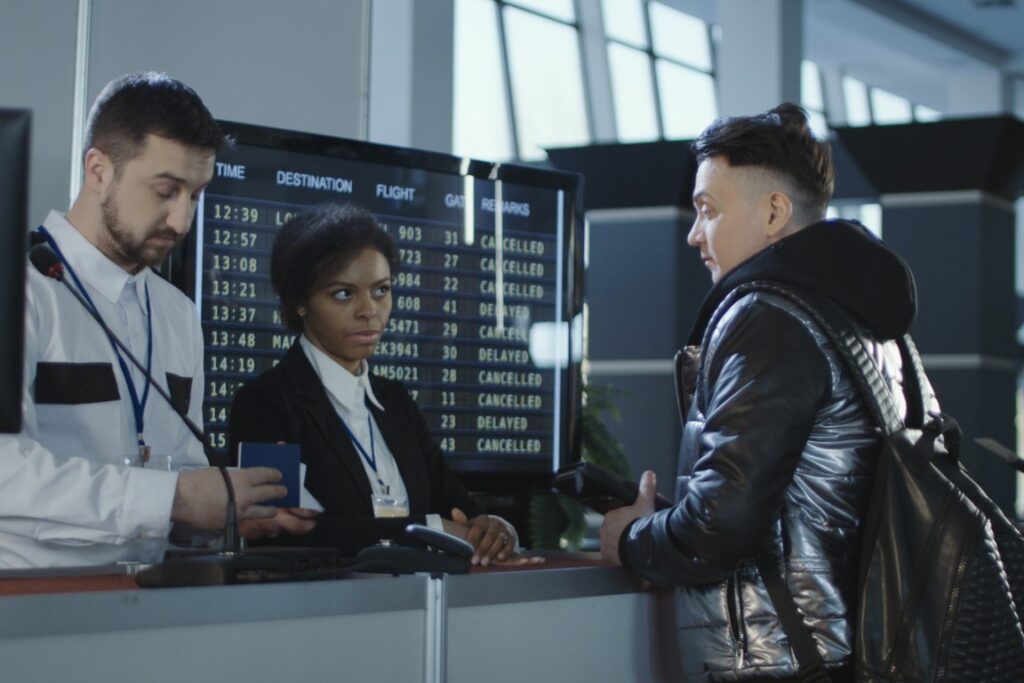
When faced with a flight delay, passengers have two primary avenues to claim compensation: doing it independently or seeking the assistance of a flight compensation company. Each method has its pros and cons.
1. Using a flight compensation company
Advantages: These companies specialize in claiming compensation on behalf of passengers. They handle all the paperwork, negotiations, and even legal actions if necessary. For many, this is a hassle-free way to claim compensation.
Drawbacks: While these companies increase the chances of a successful claim, they typically charge a success fee. The market standard is around 35% of the compensation amount. So, if you’re awarded $700 (€600) in compensation, you’d receive $455, with $245 going to the company as their fee.
Recommendation: For those short on time or unfamiliar with the process, this can be an ideal solution. For a list of reputable companies, refer to this list of the best flight compensation companies.
2. Claiming compensation independently
Advantages: If successful, you retain the full compensation amount without any deductions.
Drawbacks: The process can be time-consuming and requires a good understanding of the EC 261 regulation. Airlines often delay or ignore claims from individuals, knowing that many won’t pursue legal action. While airlines are obligated to respond within a certain time frame, there’s no regulated time frame for the payout.
Recommendation: For those who are familiar with the EC 261 regulation and have the time to follow up consistently, this can be a rewarding approach.
Steps for Independent Flight Delay Compensation Claims
1. Determine your eligibility
Use the claim checker to quickly assess if your flight qualifies for compensation under EC 261.
2. Gather necessary documentation
Ensure you have flight tickets, boarding passes, any communication from the airline about the delay, receipts for additional expenses, and a record of the delay duration and reason.
3. Fill out the EC 261 claim form
Complete the EC 261/2004 form with all relevant details. Many airlines also have their own forms on their websites. Ensure you fill those out and attach the necessary documents.
4. Approach the airline
Send your claim to the airline’s customer service or designated claims department via email. While an email is usually sufficient, ensure you keep all correspondence for your records.
5. Await airline response
Airlines typically respond within six to eight weeks. If they accept your claim, they’ll process the compensation. If rejected, understand their reasons, and consider your next steps.
6. Legal action (if necessary):
If the airline continues to reject a valid claim and you’ve exhausted other avenues, consider legal action. In such cases, you’d need a lawyer to represent you.
Both methods of claiming compensation – independently or through a flight compensation company – have their distinct advantages and challenges. Ultimately, the best approach depends on the individual passenger’s preferences, time availability, and comfort with the process. Whether you value the expertise and convenience offered by compensation companies or prefer to navigate the process on your own to retain the full compensation amount, both avenues can lead to a successful claim. It’s all about choosing the path that aligns best with your needs.
Is Flight Delay Compensation Worth It?
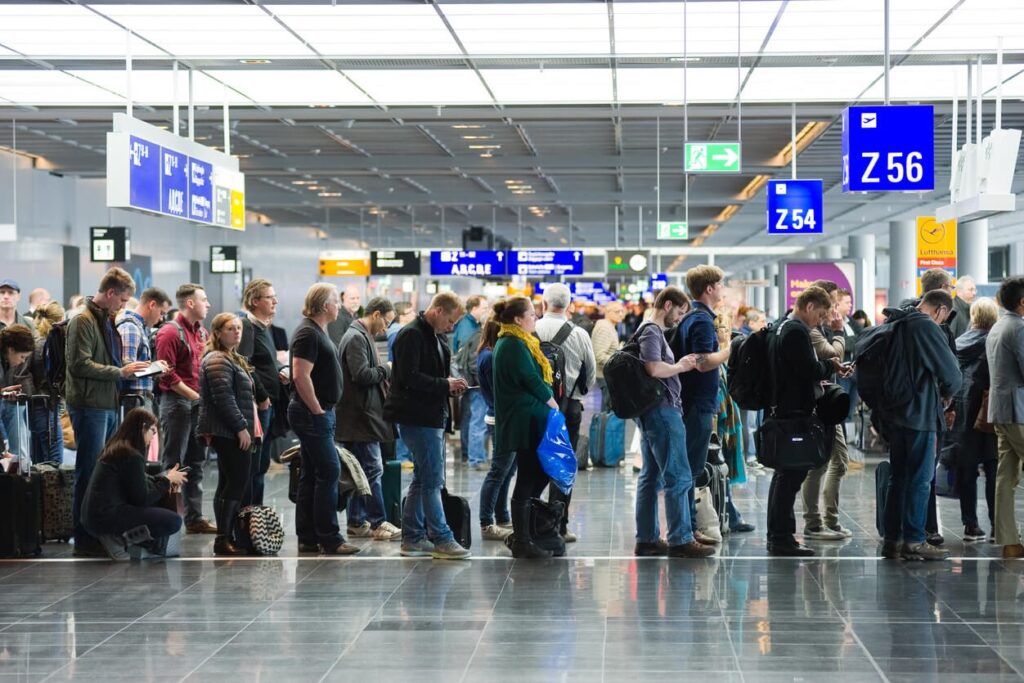
As we wrap up this comprehensive guide on flight delay compensation, you might be pondering the ethical implications of claiming. Is it truly worth the effort, and is it the right thing to do? To shed light on this perspective, here’s the take from Martynas Baniulis, co-owner of Euflightcompensation.com.
“Absolutely, flight delay compensation is not just about the monetary reimbursement; it’s about holding airlines accountable for the disruptions they cause. Speaking from my experience, I’ve seen firsthand the impact of flight delays on passengers. It’s not just the inconvenience of waiting; it’s the missed connections, the disrupted plans, and the overall uncertainty that comes with it. By claiming compensation, passengers send a clear message to airlines that they must prioritize punctuality and customer service. It’s a way of ensuring that airlines maintain high standards and are held responsible for their actions. So, is flight delay compensation worth it? Without a doubt. It’s a step towards a more accountable and passenger-friendly aviation industry.”
How was it before EC 261?
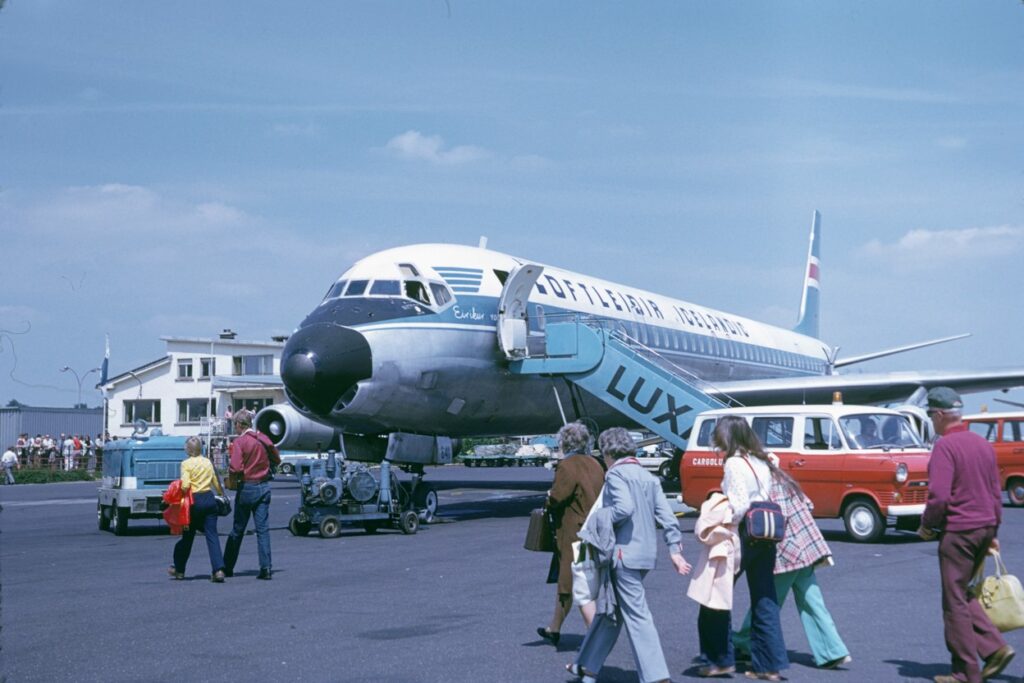
Before the EC 261 regulation came into play, the air travel landscape in the European Union was fraught with inconsistencies and challenges for passengers. Airlines often had ambiguous policies regarding compensation for flight disruptions, leaving passengers uncertain about their rights. Compensation, when offered, was discretionary and varied widely. One passenger might be offered a voucher for a significant delay, while another on the same flight might receive nothing. Communication from airlines during disruptions was often sparse, adding to travelers’ frustrations.
The most passengers could hope for in the event of a delay was a voucher or a refund and, even then, they had to provide evidence of larger financial losses to receive more than the ticket price. There were also instances where flights with few passengers wouldn’t even depart, as operating such flights was deemed a loss for airlines. Imagine the frustration of travelers who found out their flight wouldn’t be taking off simply because it wasn’t full enough.
Why was EC 261 Flight Delay Compensation Created?
The European Union recognized these glaring issues and the need for a unified regulation to ensure fair treatment of air passengers across member states. EC 261 was introduced to provide clear guidelines on passenger rights, hold airlines accountable for disruptions within their control, and promote a consistent approach to compensation and care during delays and cancellations. The regulation has since transformed the air travel experience, ensuring that passengers are no longer left at the mercy of airline discretion and have clear rights when disruptions occur.
Other flight delay compensation regulations
While the EC 261 regulation is a significant milestone in passenger rights within the European Union, several other regions worldwide have their own sets of rules and regulations pertaining to flight delays and compensations.
Let’s compare EC 261 with some of these global regulations.
United States – US Department of Transportation (DOT) regulations
Coverage: Primarily focuses on overbooking rather than flight delays.
Compensation: Airlines are required to ask for volunteers before bumping passengers involuntarily. Involuntarily bumped passengers are entitled to compensation, the amount of which depends on the length of the delay in reaching the final destination.
Differences from EC 261: Unlike EC 261, there’s no standardized compensation for flight delays. However, the DOT mandates compensation for involuntary bumping due to overbooking.
Canada – Air Passenger Protection Regulations (APPR)
Coverage: Covers flight delays, cancellations, and overbooking.
Compensation: Varies based on the size of the airline and the length of the delay. Compensation can range from CAD 125 to CAD 1,000.
Differences from EC 261: While similar in spirit, the APPR has different compensation tiers and considers the airline’s size.
Brazil – ANAC 400
Coverage: Addresses flight delays, cancellations, and overbooking.
Compensation: Airlines must offer passengers the choice of reimbursement, rebooking, or completion of the flight by another mode of transportation.
Differences from EC 261: ANAC 400 emphasizes alternative solutions like rebooking or transportation via other means rather than standardized compensation amounts.
Montreal Convention
Coverage: An international treaty covering air travel and includes provisions for flight delays.
Compensation: Allows passengers to claim damages for flight delays, but the amount is not standardized and depends on the actual harm suffered.
Differences from EC 261: The Montreal Convention is broader in scope, covering 120 countries, but doesn’t have fixed compensation amounts like EC 261. While EC 261 stands out as one of the most comprehensive and passenger-friendly regulations, various countries and international treaties have their own sets of protections for air travelers. However, our focus remains on EC 261 due to its clear, transparent rules and its unwavering commitment to passenger rights. Being well-versed in EC 261 ensures that travelers are fully equipped to understand and claim their entitlements.
Frequently Asked Questions
● What is flight delay compensation?
Flight delay compensation is a monetary amount that airlines are required to pay passengers when their flight is delayed beyond a certain time threshold, and the delay wasn’t due to extraordinary circumstances beyond the airline’s control. This compensation is mandated by regulations like the European Union’s EC 261, ensuring passengers are compensated for the inconvenience caused by significant delays.
● How long does my flight need to be delayed for me to qualify for compensation?
Under the EC 261 regulation, passengers are eligible for compensation if their flight arrives at the destination three or more hours after the originally scheduled time. The compensation amount varies based on the flight distance and the length of the delay.
● Under what circumstances am I not eligible for flight delay compensation?
Airlines are not required to compensate passengers if the delay was caused by ‘extraordinary circumstances’ beyond the airline’s control. These can include extreme weather conditions, security threats, political instability, air traffic control restrictions, unexpected flight safety shortcomings, bird strikes, and other unforeseen events. It’s essential to understand the reason for the delay to determine eligibility.
● How is the compensation amount determined for flight delays?
The compensation amount is determined based on the flight distance and the duration of the delay. For short-haul flights (up to 932 miles) delayed by 3 hours or more, the compensation is $280 (€250). For medium-haul flights (932 miles to 2175 miles) with a similar delay, it’s $450 (€400). For long-haul flights (over 2175 miles) delayed by 3-4 hours, passengers receive $338 (€300), and for delays of 4 hours or more, it’s $700 (€600).
● Can I claim compensation if my flight was delayed due to technical issues with the aircraft?
Yes, technical issues that are not related to regular maintenance or that were not caused by extraordinary circumstances typically qualify for compensation. Airlines are expected to maintain their aircraft properly, and unexpected technical faults that lead to delays make the airline liable to compensate affected passengers.
● What if the airline offers me vouchers due to the delay?
Accepting care from the airline, such as meals, refreshments, or hotel accommodation, does not affect your right to monetary compensation. However, if the airline offers you a travel voucher as an alternative to monetary compensation, and you accept it, you may be forgoing your right to claim any further cash compensation. Always ensure you understand the terms before accepting any offers from the airline.
● How far back can I claim compensation for a delayed flight?
The time frame for claiming compensation varies by country within the European Union. For instance, in Germany, you can claim for flights up to three years old, while in the UK, it’s up to six years. It’s essential to check the specific time limits set by the country where the airline is based or where the flight departed from.
● Do I need to be an EU citizen to claim compensation under EC 261?
No, the EC 261 regulation applies to all passengers, regardless of nationality. The key criteria are the flight’s origin and destination and the airline’s base. If your flight departed from an EU airport or was with an EU-based airline arriving in the EU, you might be eligible for compensation.
● How long does it typically take to receive compensation once claimed?
The time it takes to receive compensation can vary. Airlines typically have a set period, often six to eight weeks, to respond to claims. If the airline accepts your claim, they’ll process the compensation shortly after. However, if they reject it or do not respond, the process might take longer, especially if legal action becomes necessary.
● What should I do if the airline rejects my compensation claim?
If the airline rejects your claim, first ensure you understand the reasons. Sometimes, airlines might decline valid claims, hoping passengers won’t pursue further. If you believe your claim is valid and the airline’s reasons are not justified, you can consider seeking professional assistance from flight compensation companies or legal representatives to challenge the airline’s decision.
● What are ‘extraordinary circumstances’ in the context of flight delays?
‘Extraordinary circumstances’ refer to situations beyond the airline’s control where even if all reasonable measures had been taken, the delay or cancellation could not have been avoided. Examples include extreme weather conditions, security threats, political instability, air traffic control restrictions, unexpected flight safety shortcomings, and strikes that affect the operation of the airline.
● If my flight is delayed, am I entitled to care and assistance from the airline?
Yes, under EC 261, if your flight is delayed, the airline must provide care and assistance, especially for longer delays. This can include meals, refreshments, two free phone calls or emails, and hotel accommodation if you’re delayed overnight. The specifics depend on the flight distance and the length of the delay.
● Can I claim compensation if I missed a connecting flight due to a delay?
Yes, if you miss a connecting flight due to a delay in one of your flights and arrive at your final destination with a delay of three or more hours, you might be entitled to compensation. The flights must be under a single booking, and the missed connection should be a direct result of the delay in the initial flight.
● What if the airline offers me a replacement flight due to the delay?
If the airline offers you a replacement flight because of a significant delay, you can choose to take it. However, if the replacement flight also results in a delay upon arrival of three or more hours, you remain eligible for compensation under EC 261. Always keep records of your original and replacement flight details for any future claims.
● What should I do if the airline rejects my valid claim?
If the airline rejects your claim and you believe it’s valid, you can escalate the matter. Consider seeking professional assistance from flight compensation companies that specialize in these claims. They can help navigate the complexities and even take legal action on your behalf if necessary.
● Are charter flights covered under EC 261?
Yes, charter flights are covered under EC 261, just like scheduled flights. If your charter flight departs from an EU airport or arrives at an EU airport on an EU-registered airline and faces significant delays, you may be entitled to compensation.
● If I used air miles or points to book my ticket, can I still claim compensation?
Yes, the method of payment or booking doesn’t affect your eligibility for compensation. Whether you paid for your ticket with money, air miles, or points, if your flight meets the criteria for compensation under EC 261, you can file a claim.
Conclusion
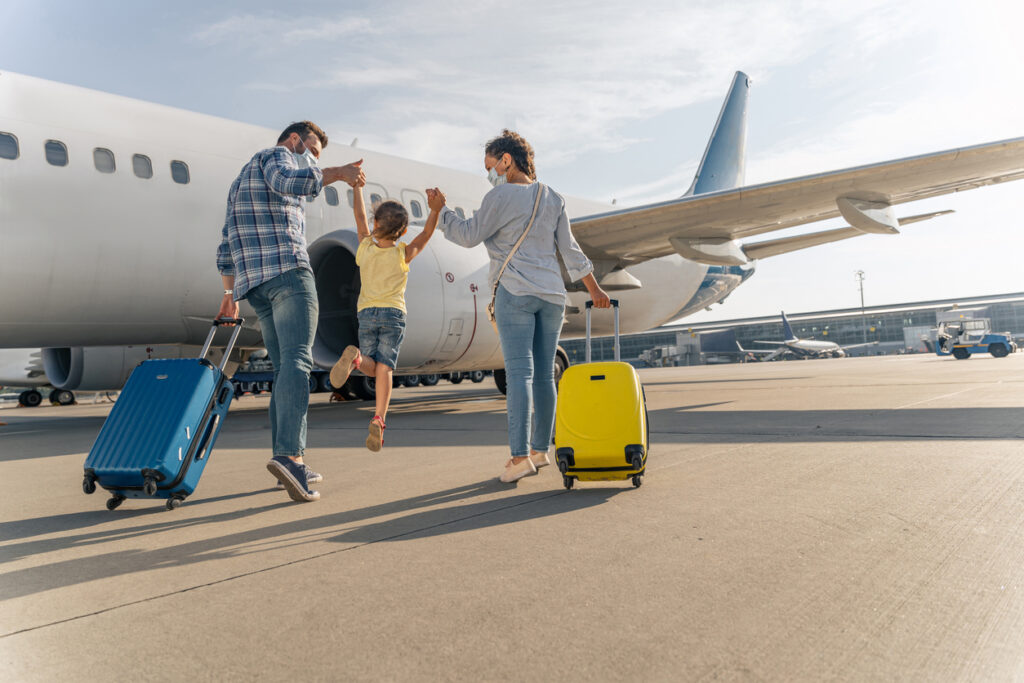
Navigating the world of flight delays can be a daunting experience, filled with uncertainty and frustration. However, as this comprehensive guide has highlighted, passengers are not powerless in these situations. Armed with knowledge and the right tools, travelers can turn these disruptions into opportunities to hold airlines accountable and claim what they rightfully deserve.
The EC 261 regulation, in particular, stands as a testament to the rights of passengers within the European Union. It underscores the importance of punctuality, transparency, and accountability in the aviation industry. Whether you choose to pursue compensation independently or with the assistance of professionals, the key is to be informed and proactive.
At the end of the day, flight delay compensation is more than about monetary reimbursement. It’s a reflection of the broader commitment to ensuring that passengers are treated with respect and fairness. By understanding your rights and taking action when necessary, you not only benefit personally but also contribute to a more responsible and passenger-centric aviation industry. Safe travels!

